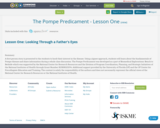
This resource is a video abstract of a research paper created by Research Square on behalf of its authors. It provides a synopsis that's easy to understand, and can be used to introduce the topics it covers to students, researchers, and the general public. The video's transcript is also provided in full, with a portion provided below for preview:
"For the first time, scientists have figured out how to grow and extend the life of primary airway epithelial cells from newborns and young children. These cells line our nasal passages and lungs, protecting us from pathogens, and controlling our immune responses to allergens. Differences in these cells may help explain why certain infants develop wheezing and asthma later in life, but studying them has been challenging because they are difficult to obtain in babies and usually die in culture after dividing a few times. Now, researchers at Children’s National Medical Center in Washington, D.C. and George Washington University have devised a way to reprogram pediatric airway epithelial cells so that they survive, creating a new model to study respiratory disorders that take hold early in life. The team collected airway epithelial cells from 23 donors, including newborns, infants and young children..."
The rest of the transcript, along with a link to the research itself, is available on the resource itself.
- Subject:
- Applied Science
- Health, Medicine and Nursing
- Material Type:
- Diagram/Illustration
- Reading
- Provider:
- Research Square
- Provider Set:
- Video Bytes
- Date Added:
- 09/20/2019
